Robert Browning is one of the most notable English poets from the Victorian period.
Browning was a playwright and a poet. His qualities are considered to include historical settings, social commentary, dark humour, and irony. His dramatic plays made him one of the remembered Victorian poets.
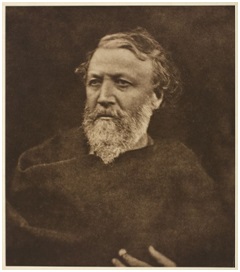
Browning’s poems have been subjected to much criticism and though his literary career began with much success, it was soon met with considerable apathy. Browning’s personality has always been quite impressive, with the writer paying no heed to poor sales.
Early Life and Education
Robert was born in 1812, May 7th, in Camberwell, Surrey. Robert had written his first poetry book by the age of 12. Although this was destroyed by him as he found no publisher to publish it. He didn’t like going to school, so he changed schools twice before finally quitting school and getting an education at home, by a personal tutor covered by his father.
Robert Browning had an interest in different languages and started learning Latin, Italian, Greek, and French. By the age of 14, he became fluent in all these languages. In his childhood, he admired Shelley’s romantic poems along with other romantic poets. He decided to become a vegetarian and an atheist, just like Shelley.
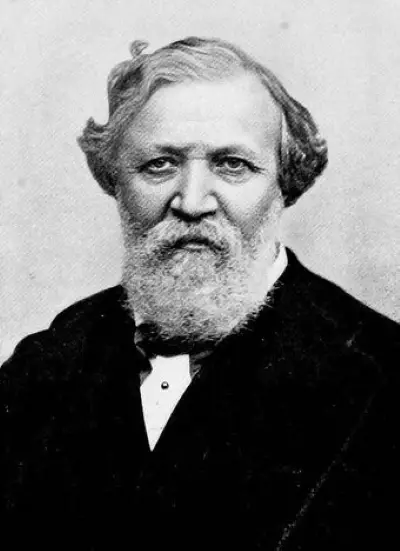
Robert started studying at University College of London but after his first year, he quit that too. He wanted to join Cambridge or Oxford but as it was only for Church England’s members, he couldn’t.
Robert’s parents wanted him to get a formal job but he different interests, first he started composing songs and later wanted to become a poet. Till the age of 34, he was at home doing nothing but poetry and other writing, financially depending on his family’s resources. His father published some of his poems using his own money.
Marriage
Robert met Elizabeth Barrett, who was also a poet. He was six years younger than her. They married in 1846 and went to live in Italy. They were married secretly as Elizabeth’s father didn’t approve any of his children to marry. Her father said he’ll disown anyone who’ll marry, so when he found out he did that. They had one son together named Robert Wiedemann Barrett Browning.
He had not given in to frustration and obstinacy and all of that accounts for the posthumous fame that he has got over the ages. His poems have a stench of irony mixed with a satiric outlook.
Mind-boggling syntax, his mastery over the words, dark humour, historical reference are some of the salient features that mark Robert Browning’s poetry.
Robert Browning’s Family
Robert Browning had a family that nurtured the development of the literary genius in him. His mother, Sarah Anna Wiedemann, was a talented musician and he was very close to her.
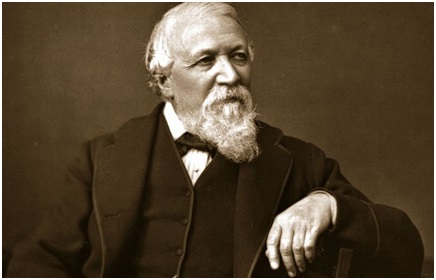
Robert’s father, also named Robert Browning, was a literary collector and had gathered a library of thousands of books, with some of them being quite rare. She also had a younger sister, Sarianna, who was also quite gifted and had been a companion after the death of Robert’s wife.
Literary Career of Robert Browning
Robert published Pauline, a Fragment of a Confession in March 1833 anonymously. The publisher of this work was Saunders and Otley, although Robert paid for publishing. Mrs. Silverthorne, his aunt, gave him money and he probably used that to publish this.
Paracelsus
In 1835, Robert published Paracelsus, which was a result of his tour of St Petersburg with Russian general in 1834. This work was a success both commercially and critically. This work was noticed by many writers such as Tennyson, Landor, and Charles Dickens.
Paracelsus was a monodrama with no action, showed problems faced by an intellectual to find space in the society. Because of this work, Robert was introduced to the literary world of London.
Robert wrote a play after he was invited by Macready, the play was Strafford and it played 5 times in the theatre. This play turned out to be a success and therefore he wrote two more plays, one failed and the other was never performed.
Sordello
Robert published Sordello in 1838; he went to Italy to search for the theme of background. Sordello was a biography of Mantuan in the form of a poem. It showed a war happening, named as Guelph-Ghibelline War, and filled with conflict and hate. This wasn’t well-received by the readers; they called him full of obscurity and carelessness.
Several comments were made by writers such as Carlyle said, his wife couldn’t figure out if Sordello was a book, city, or a man after reading the whole poem. Tennyson said that he couldn’t understand anything but the starting and ending line of the poem. This made his reputation go downside.
From 1841 to 1846, Robert published a series of pamphlets of Bells and Pomegranates. This helped him to gain back some reputation. Later in 1849, John Kenyon, cousin of his wife, decided to give £100 to them annually, and eventually, in 1856, he died and left a total of £11,000.
In 1855, Robert released a poem titled Men and Women, it had two volumes. As the poem is well-known now but during that time it wasn’t a success and had a little impact relatively. Later in 1861, Robert’s wife died and in 1863 he started working on his new poem.
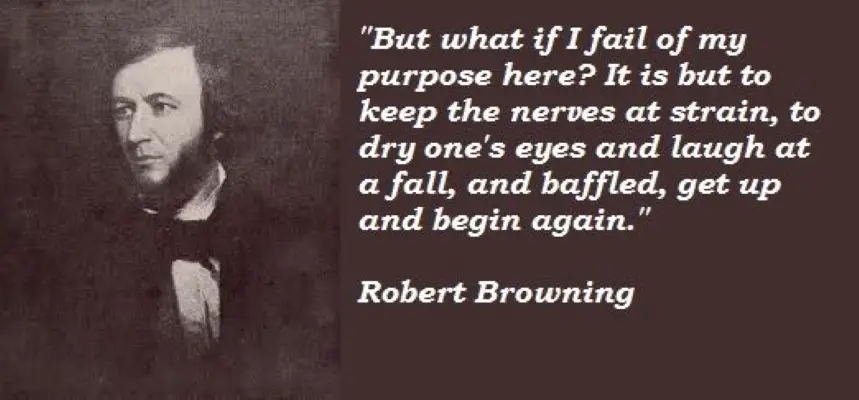
The Ring and the Book
Robert took five years to finish this poem and finally published in1868, it was a very long poem consisting of 12 books and 20,000 lines, and 10 narrators telling the story from their point of view. This book was based on a murder case happened in Rome.
This poem is considered to be his best work ever and it was also his ambitious one. It was published from November of 1868 to February 1869 in four phases. It was a huge success both critically and financially, and it got Robert the fame and renown that he aimed for over 40 years.
Why I am Liberal
Robert was a Liberal, as some of his poems showed that he wrote for animal rights. Also, he spoke against slavery and supported equality for women. He published a poem titled “Why I am Liberal”, and in that poem he wrote, “Who then dares hold – emancipated thus / His fellow shall continue bound? Not I.”
Throughout his life, Robert didn’t take anything that involved him speaking in public. He was offered Glasgow’s Lord Rectorship, London University’s Governor, and Edinburgh’s LL. D. Apart from all this, he received many distinguished awards.
Later Life
Robert used to travel extensively in his last years, although he didn’t stop writing. In the 70s, he released several poems and the most famous were Red Cotton Night-Cap Country and Balaustion’s Adventure.
It is said that Robert and Louisa Caroline Stewart-Mackenzie were romantically involved and that she put a proposal for marriage and he refused. Later in 1878, he went to Italy and he started going there occasionally. After this, he produced what is known to be one of the major works and among the last ones Parleyings with Certain People of Importance in Their Day.
Death
Robert died in 1889, December 12th, in his son’s house. His burial took place at Westminster Abbey and he is buried alongside Alfred Tennyson. Upon his death, he was remembered as a poet of philosophy and his writings contributed to the social and political life of the Victorian Era.
Legacy of Robert Browning
For most of the writers, people from societies after their death, but for Robert, they made societies when he was alive, and were there till the 20th century, in parts of the USA and England.
Oscar Wilde said, “He is the most Shakespearean creature since Shakespeare. If Shakespeare could sing with myriad lips, Browning could stammer through a thousand mouths. Yes, Browning was great. And as what will he be remembered? As a poet? Ah, not as a poet!
He will be remembered as a writer of fiction, as the most supreme writer of fiction, it may be, that we have ever had. His sense of the dramatic situation was unrivaled, and, if he could not answer his problems, he could at least put problems forth, and what more should an artist do?
Considered from the point of view of a creator of character he ranks next to him who made Hamlet. Had he been articulate, he might have sat beside him. The only man who can touch the hem of his garment is George Meredith. Meredith is a prose Browning, and so is Browning. He used poetry as a medium for writing in prose.”
Robert Browning’s Works
All of these greatly contributed to the development of Browning as the great poet he is known to be. Even his wife had been a great poetess by the name of Elizabeth Barrett. She was already quite established by the time Robert started courting her.
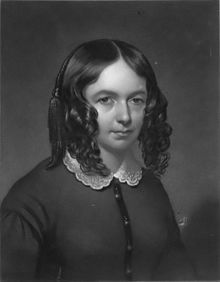
Though Elizabeth’s father disapproved of the relationship, the couple carried on their courtship through letters. They had eloped to Italy after getting married, and this is where the couple produced most of their famous works.
Literary Style of Robert Browning
Robert Browning was a very learned person who had mastered Latin, Greek, Italian, and French by the age of fourteen and read through volumes of work.
He had attended the University of London in 1828, but disgusted with the pace of his improvement there, he continued to carry on his studies on his own.
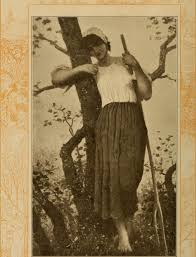
This is why many of his readers find it difficult to find the references mentioned in his work. He had also been quite obscure in mentioning the allusions and had not realized this due to his vast knowledge.
Robert Browning Poems
The poet has made his poems reflect his versatility through various styles like narrative, monologue, and even lyricism.
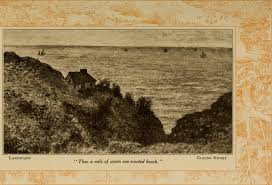
One of the most notable features of his collections is that he does not give any importance to the chronology, just the content of the poems themselves.
Dramatic Lyrics, Dramatic Romances, and Lyrics are two collections that have portrayed Browning’s talent. His creations derive impulses and ideas through vision, quest, and madness and from the vast world of his imagination.
Critical Review of Robert Browning’s Style and Poems
Robert Browning is very much famous for his personal style of Dramatic Monologue. He has contributed a lot to the development of this style of writing. Browning had found his capabilities of developing characters through the speeches that they make,
Thus building the characterization in stages. Most writers develop their style through experience and their creations can be justified by making close scrutiny of the prevalent society and their involvement.

Robert Browning had seemingly tried to write dramas to be played on stage. This was after he met William Macready in the 1830s. This is when he started to make his way through his own style of Dramatic Monologue.
Robert Browning As a Writer
His poem Pauline was among the first and brought attention, especially that of Dante Rossetti. Paracelsus, in 1835, made more impact as it was praised by prominent writers like William Wordsworth and the novelist Charles Dickens.
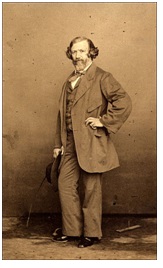
But he brought his doom with the difficult poem Sordello, which was criticized as deliberately obscure. Browning had a little difficulty after this to get into the limelight.
Robert Browning’s Relocation to Italy
The relocation to Italy has been one of the most important stages in his life. The collection Men and Women were out before the death of his beloved wife. There was also the collection Dramatis Personae which has been very popular.
He had also continued writing beyond this period, but the recognition he earned was mostly due to the work that he produced at the time.
Few more Facts
By the time, Robert Browning was on his deathbed, he had become a sensation to all those around him. He was revered as a sage and a philosopher more than just a poet.
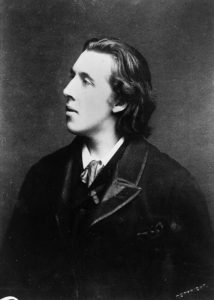
His reign throughout the Victorian age has not been quite prominent, but his influence had grown over the years. He had inspired several other poets that included Oscar Wilde, Bernand Shaw, and others.
Here is a complete list of his works
Pauline: A Fragment of a Confession (1833)
Paracelsus (1835)
Strafford (play) (1837)
Sordello (1840)
Bells and Pomegranates (1841–6)
Bells and Pomegranates No. I: Pippa Passes (play) (1841)
The Year’s at the Spring
Bells and Pomegranates No. II: King Victor and King Charles (play) (1842)
Bells and Pomegranates No. III: Dramatic Lyrics (1842)
Porphyria’s Lover
Soliloquy of the Spanish Cloister
My Last Duchess: A dramatic monologue revealing a Duke’s pride and jealousy
My Last Duchess by Robert Browning – Summary and Analysis: The sinister monologue of a Duke showing off a portrait of his deceased wife
The Pied Piper of Hamelin
Count Gismond
Johannes Agricola in Meditation
Bells and Pomegranates No. IV: The Return of the Druses (play) (1843)
Bells and Pomegranates No. V: A Blot in the ‘Scutcheon (play) (1843)
Bells and Pomegranates No. VI: Colombe’s Birthday (play) (1844)
Bells and Pomegranates No. VII: Dramatic Romances and Lyrics (1845)
The Laboratory
How They Brought the Good News from Ghent to Aix
The Bishop Orders His Tomb at Saint Praxed’s Church
The Lost Leader
Home Thoughts from Abroad
Meeting at Night
Bells and Pomegranates No. VIII: Luria and A Soul’s Tragedy (plays) (1846)
Christmas-Eve and Easter-Day (1850)
Men and Women (1855)
Evelyn Hope
Love Among the Ruins
A Toccata of Galuppi’s
Childe Roland to the Dark Tower Came
Fra Lippo Lippi
Andrea Del Sarto
The Patriot
The Last Ride Together
Memorabilia
Cleon
How It Strikes a Contemporary
The Statue and the Bust
A Grammarian’s Funeral
An Epistle Containing the Strange Medical Experience of Karshish, the Arab Physician
Bishop Blougram’s Apology
Master Hugues of Saxe-Gotha
By the Fire-side
Dramatis Personae (1864)
Caliban upon Setebos one more
Rabbi Ben Ezra
Abt Vogler
Mr. Sludge, “The Medium”
A Pretty Woman: The poet’s musings on the nature of beauty and attraction
A Light Woman– Summary and Analysis: Exploring societal judgments and the complexities of relationships
Prospice
A Death in the Desert
The Ring and the Book (1868–69)
Balaustion’s Adventure (1871)
Prince Hohenstiel-Schwangau, Saviour of Society (1871)
Fifine at the Fair (1872)
Red Cotton Night-Cap Country, or, Turf and Towers (1873)
Aristophanes’ Apology (1875)
Thamuris Marching
The Inn Album (1875)
Pacchiarotto, and How He Worked in Distemper (1876)
Numpholeptos
The Agamemnon of Aeschylus (1877)
La Saisiaz and The Two Poets of Croisic (1878)
Dramatic Idyls (1879)
Dramatic Idyls: Second Series (1880)
Pan and Luna
Jocoseria (1883)
Ferishtah’s Fancies (1884)
Parleyings with Certain People of Importance in Their Day (1887)
Asolando (1889)
Prologue
Summum Bonum
Bad Dreams III
Flute-Music, with an Accompaniment
Epilogue